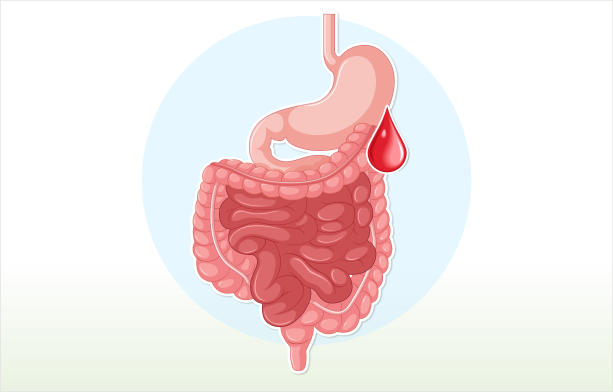gi bleeding
Gastrointestinal bleeding refers to bleeding in any part of the digestive tract, including the esophagus, stomach, small intestine, large intestine, rectum, or anus.
FAQ
What causes GI bleeding?
GI bleeding can be caused by various factors, including peptic ulcers, esophageal varices, gastritis, colorectal polyps or cancer, diverticulosis, inflammatory bowel disease, and certain medications.
What are the symptoms of GI bleeding?
Symptoms can include blood in vomit (hematemesis) or stool (melena or hematochezia), weakness, fatigue, abdominal pain, and lightheadedness. The severity of symptoms can vary depending on the location and extent of bleeding.
How is the cause of GI bleeding diagnosed?
Diagnosis involves a combination of medical history review, physical examination, blood tests, endoscopy, colonoscopy, imaging studies, and sometimes angiography to identify the source and cause of bleeding.
What are the risk factors for GI bleeding?
Risk factors include age, a history of gastrointestinal conditions (such as peptic ulcers or inflammatory bowel disease), excessive alcohol consumption, use of nonsteroidal anti-inflammatory drugs (NSAIDs), and certain medical conditions.
Can GI bleeding be life-threatening?
Yes, GI bleeding can be life-threatening, especially if the bleeding is severe or rapid. Immediate medical attention is crucial to determine the cause and initiate appropriate interventions.
How is GI bleeding treated?
Treatment depends on the cause and severity of the bleeding. It may involve medications to stop acid production, endoscopic procedures to treat bleeding lesions, surgery, or, in severe cases, blood transfusions. Treating the underlying cause is essential for long-term management.
Can GI bleeding be prevented?
Prevention strategies include managing risk factors such as avoiding excessive alcohol consumption, using NSAIDs cautiously, treating underlying conditions promptly, and adopting a healthy lifestyle with a balanced diet and regular exercise.
Can certain medications cause GI bleeding?
Yes, certain medications, such as NSAIDs (e.g., aspirin, ibuprofen), blood thinners (anticoagulants), and corticosteroids, can increase the risk of GI bleeding. It’s important to use these medications under the guidance of a healthcare provider.
Is GI bleeding always visible?
No, GI bleeding may not always be visible. Bleeding in the upper digestive tract (such as the esophagus or stomach) can result in black, tarry stools (melena), while bleeding in the lower digestive tract (such as the colon) can cause bright red or maroon-colored stools (hematochezia). However, not all GI bleeding is externally visible. Internal bleeding can occur without obvious signs. If symptoms suggest GI bleeding, prompt medical attention is crucial.


